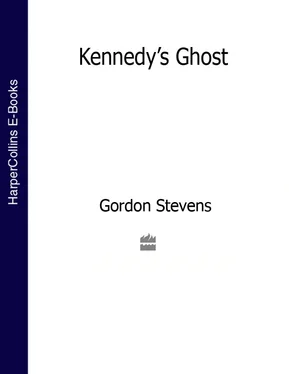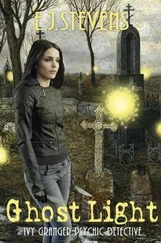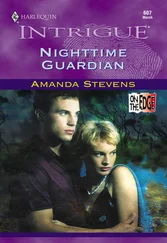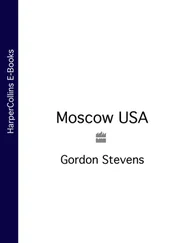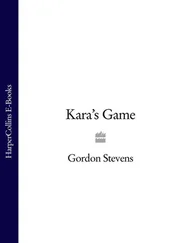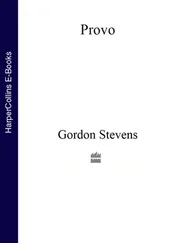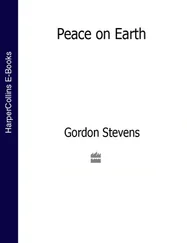The highest award for valour the nation could bestow.
‘Mommy,’ the reporter heard the voice of the girl in the arms of the young woman next to the marine. ‘Why has that man only got one arm?’
It was eleven-twenty, the morning bright and the silver of the 737 gleaming against the faultless blue of the sky. Ten minutes to landing, the pilot informed his passengers. In the second row from the front Donaghue checked the speech for the last time and whispered the words of the first quote. Perhaps to Pearson, perhaps to himself.
Some men see things as they are and say why;
I dream things that never were and say why not.
The boy was ten years old, seated with his mother towards the rear.
‘You think he’ll mind?’
Of course he’ll mind, the woman knew she should say. He’s busy, too many things on his mind, especially today. ‘Ask him,’ she said instead.
‘Come with me.’
‘Go by yourself.’
The boy gripped the Polaroid camera and made his way down the aisle, the nerves consuming him. Halfway along he hesitated and looked back, saw the way his mother nodded for him to go on.
‘Excuse me.’ He stopped by the two men seated on the left and realized he had forgotten to say sir. ‘Would you mind if I took your photograph?’
Donaghue smiled at the boy and turned to Pearson.
‘I think we can go better than that, don’t you, Ed?’
‘Sure we can.’
Fifteen rows back the woman watched as Pearson stood, took the camera from her son, sat him by Donaghue, and took a photograph of the two of them together. The boy watched as the print rolled out and the image rose on the slippery grey of the plastic.
‘What’s your name?’ Donaghue asked him.
‘Dan.’
‘Dan who?’
‘Dan Zupolski.’
The print was dry. Donaghue took a pen from his pocket and signed it.
To Dan Zupolski, from his friend, Senator Jack Donaghue .
It was eleven twenty-five.
In the Caucus Room the doors opened and the supporters turned, suddenly expectant, the television crews cursing that they had not been forewarned. Catherine Donaghue walked in and stood on the platform. Mid-forties and slim; the blond of her hair and the steel and the sun in her eyes.
‘Sorry to give you a heart attack, boys.’ She knew what the crews had thought and smiled at them, acknowledged the way they laughed back.
He’d seen it all before, the NBC correspondent thought. Except not like this, not like today. He wouldn’t admit it, of course, but one hell of a day to be the front man, one hell of a thing to tell the grandkids.
One hell of a smile, the CBS man whispered to no one in particular. One hell of a First Lady.
Cath Donaghue looked round the crowd. ‘I thought you’d like to know. We’ve just heard from the airport. Jack’s plane is five minutes out; he’ll be landing on time at eleven-thirty, be here at twelve.’
There was a roar. She held up her hands to still it.
If this was the prelim, Christ knows what the main event is going to be like, the CNN reporter thought. Give me some cut-aways now, he told his cameraman. Couple of veterans, couple of kids.
‘How’s it looking?’ He heard the voice of his producer down the line.
‘Looking good.’
Looking fantastic, he meant.
‘What time’s he due?’
‘Twelve noon, everything on schedule. Why?’
‘We’re going live on it.’ CNN network, CNN global. ‘Coming to you at eleven fifty-five.’
The applause quietened, the supporters waiting. Cath Donaghue looked up and smiled again.
‘Before Jack arrives, I just wanted to thank you all for coming today.’ As if the honour was hers and Jack’s; as if, by being present at that place on that day, it was those in front of her who were doing the Donaghues a favour.
She looked around them again and smiled again. Take care of him, Dave, she prayed; make sure he gets here, please God don’t let me down.
‘It’s a great place to be, a great day to be here. Thank you all.’
Even after she had left, even after she was back in Room 394, the cheers were echoing round the Caucus Room and the applause was ringing down the white marble of the corridors.
It was eleven twenty-eight.
The 737 banked over the Potomac and began its run-in, the wing lights blinking against the silver and the silver brilliant against the morning sky.
Jordan glanced at Donaghue and realized he was looking at the White House.
‘Ready, Jack?’
What are you thinking? he almost asked.
I’m thinking about something Haslam said, Donaghue would not have told him. I’m thinking about a conversation Haslam and I agreed never took place.
‘As I’ll ever be.’
The 737 bumped gently on the runway, the reverse thrust thundering, then taxied to the terminal. The flight-deck door opened and the pilot and copilot stepped out and stood with the cabin crew at the front of the plane. The fuselage door to the terminal opened. In the passenger bridge on the other side Jordan saw the line of officials.
‘Okay, Jack. Let’s do it.’
Donaghue stood and straightened his suit, Pearson slightly behind him and Jordan at his shoulder. The rest of the passengers were still seated, all watching. He passed along the line of crew members and shook each of their hands.
‘Give it to ’em today, Jack.’ The voice was from the back of the plane.
‘Good luck, Mr President.’ Another.
Abruptly the passengers rose and began to clap. Donaghue turned and waved his thanks at them, then left the plane and stepped through the jet bridge and into the terminal, everyone wanting to shake his hand this morning, everyone wanting to wish him luck. Some addressing him as Jack, others as Senator. More than the occasional person calling him Mr President.
The doors of the Lincoln were open. Brettlaw stepped forward and Donaghue shook hands with him, embraced him.
‘Good to see you.’
‘You too, old friend.’
Eleven thirty-three.
The Lincoln left National.
Hendricks checked his watch. Not much traffic today, therefore the target on time.
Even though the road out of the underpass was in front of him and the glistening white of Capitol Hill was behind and to his left, he saw it differently, as if he was the driver of the Lincoln, as if he was the man delivering the target to the killing zone.
Right out of National and on to George Washington Parkway – he ran through the route again. Off the Parkway and across 14th Street Bridge. Fork right at the end into the series of underpasses dissecting DC, the cars which would funnel the Lincoln into the correct lane, and into the correct position in the killing zone, already closing. First underpass then second, right at the first exit but still underground, then right again at the second exit, the carriageway of this section single-lane, still climbing and curving left, then straightening into the sunlight. Sixty yards from the underpass to the traffic lights at First. White multistorey housing the National Association of Letter Carriers on the right, and side road joining the underpass road from behind the multistorey, so that at the junction with First the road was two-lane. Six-foot-wide central reservation of grass and trees to the left and wire fence down the middle, and the road on the other side leading only to an underground car park. Grey multistorey of the Federal Home Loan Bank beyond the road. Grass and more traffic lights in front and leading to the Hill.
Everything quiet, little traffic and hardly any pedestrians. Everything perfect.
Eleven thirty-four.
The Lincoln eased on to George Washington Memorial Parkway.
Thirty-five.
The Lincoln pulled right, off the Parkway and across 14th Street Bridge, the grey-blue of the Potomac below them and the white of DC suddenly in front. The white always dazzling, but this morning almost blinding. Fork at end of bridge, Route N1 goes left and Route 395 right.
Читать дальше
